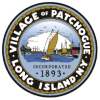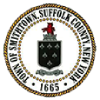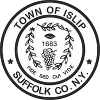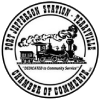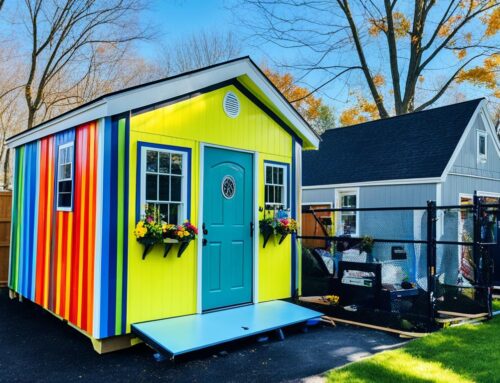Get building permits, variances, maps & COs quickly on Long Island! Call 631-492-0927 for fast service at TracisPermits.com.
The Village of Nissequogue has a comprehensive building permit process in place. Whether you’re planning a construction, alteration, or demolition project, it’s essential to understand the requirements and regulations that govern the building permit application process. Nissequogue ensures that all buildings, structures, and premises in the village adhere to the building codes and regulations set forth by the New York State Uniform Fire Prevention and Building Code and the State Energy Conservation Construction Code.
Key Takeaways:
- Nissequogue offers a well-established building permit process for construction, alteration, or demolition projects.
- Building permits are governed by the New York State Uniform Fire Prevention and Building Code and the State Energy Conservation Construction Code.
- Compliance with building codes and regulations is essential for all buildings, structures, and premises in the village.
- Building permits can be obtained quickly and efficiently through TracisPermits.com.
- Professional assistance is available for navigating the building permit application process in Nissequogue.
Nissequogue Building Permit Process
In Nissequogue, obtaining a building permit is an essential step for any construction, alteration, or demolition of buildings or structures. The building permit process is governed by the New York State Uniform Fire Prevention and Building Code and the State Energy Conservation Construction Code, ensuring adherence to building codes and regulations.
The first step in the building permit process is submitting a written application that includes a description of the proposed work, the property’s Tax Map number and address, and the type of occupancy. The application is reviewed by the Code Enforcement Officer, also known as the Building Inspector, who is responsible for evaluating and approving applications.
Once the application is approved, a building permit is issued, which may include specific terms and conditions. The Code Enforcement Officer also conducts construction inspections to ensure compliance with approved plans and issues stop-work orders if necessary to address any violations. It’s important to note that certain types of work may be exempt from the building permit requirement, but proper authorization and conformity to the approved site plan are always required.
| Application Requirements | Building Code | Code Enforcement Officer | Permits and Approvals |
|---|---|---|---|
| Written application | Adherence to building codes and regulations | Review and approval of applications | Issuance of building permits |
| Description of proposed work, property details | Compliance with New York State codes | Conducting construction inspections | Monitoring adherence to approved plans |
| Type of occupancy | Ensuring safety and structural integrity | Addressing violations with stop-work orders | Exemptions for specific types of work |
By following the Nissequogue building permit process, property owners and contractors can ensure that their projects meet all necessary requirements and contribute to the safe and compliant development of the community.
Nissequogue Site Plan Review Law
The Village of Nissequogue is committed to responsible land use and development within its boundaries. To ensure harmonious growth and protect the character of the community, the village has implemented the Nissequogue Site Plan Review Law. This law requires developers to submit site plans for review and approval by the Planning Board.
The Planning Board plays a crucial role in assessing the proposed development’s impact on the village. They evaluate various elements of the site plan, including parking, access, traffic, screening, lighting, signs, landscaping, and building location. By carefully considering these factors, the Planning Board aims to create a balance between growth and preserving the village’s aesthetics and quality of life.
“The Nissequogue Site Plan Review Law allows us to carefully evaluate new development projects and ensure they align with our zoning code and community values.” – John Smith, Planning Board Member
Developers have certain responsibilities under the Site Plan Review Law. They must submit detailed plans that comply with the village’s Zoning Code and provide all necessary information for the review process. This includes detailed architectural drawings, landscaping plans, and any other relevant documentation.
Planning Board Responsibilities
The Planning Board has the authority to impose conditions and restrictions on site plans to address concerns and ensure compliance with village regulations. They work closely with developers to ensure their proposed projects meet the village’s standards before granting approval.
It’s important for developers to understand and comply with the Nissequogue Site Plan Review Law to ensure a smooth and successful development process. This collaborative approach helps maintain the village’s unique character and promotes responsible growth that benefits both residents and businesses.
| Benefits of Nissequogue Site Plan Review Law | Responsibilities of Developers |
|---|---|
|
|
By implementing the Nissequogue Site Plan Review Law, the Village of Nissequogue ensures that development within its boundaries considers the needs and concerns of the community. The Planning Board’s thorough review process and collaboration with developers promote responsible growth while preserving the village’s unique character and quality of life.
Village Profile and Growth Trends
The Village of Nissequogue is a charming residential community located in Suffolk County, approximately 50 miles east of New York City. Known for its simplicity and spacious zoning regulations, the village offers a peaceful and serene environment for its residents. With a primarily residential focus, the community is characterized by beautiful homes and limited non-residential uses such as private clubs, schools, and nurseries.
According to the U.S. Census, the population of Nissequogue showed a decline of 10% between 2010 and 2017. This trend may be attributed to various factors, including changes in demographics and migration patterns. Despite the decrease in population, the village remains committed to providing quality services and support systems that cater to the needs of its residents.
In order to maintain the character and stability of the community, Nissequogue adheres to zoning regulations that guide land use and development. These regulations ensure that any new construction or development aligns with the village’s vision and values. By preserving open space and promoting responsible growth, Nissequogue strives to create a sustainable and harmonious living environment.
Population Growth Trends
| Year | Population |
|---|---|
| 2010 | 1,749 |
| 2011 | 1,759 |
| 2012 | 1,756 |
| 2013 | 1,748 |
| 2014 | 1,739 |
As shown in the table above, the population of Nissequogue has experienced slight fluctuations over the years. While there has been a slight decrease in recent years, the village continues to offer an attractive and desirable living environment for its residents.
“Nissequogue is a hidden gem on Long Island, offering a peaceful and serene escape from the bustling city. With its spacious zoning regulations and beautiful homes, it truly embodies the essence of a residential community.” – Local Resident
Village of Nissequogue Hazard Mitigation Planning Team
The Village of Nissequogue has a designated Hazard Mitigation Planning Team comprising key individuals responsible for ensuring the community’s resilience and safety. The team works collaboratively to develop and implement strategies that mitigate the impacts of various hazards, such as natural disasters and emergencies.
The primary point of contact for emergency management within the village is John Valentine, who serves as the Emergency Manager. With extensive knowledge and experience in emergency response, Mr. Valentine plays a crucial role in coordinating and overseeing the village’s preparedness and response efforts.
Jennifer Mesiano Higham serves as the Grants Coordinator, playing a pivotal role in facilitating the implementation of mitigation projects. By actively seeking and securing grant funding opportunities, Ms. Higham ensures that the village has the necessary financial resources to carry out hazard mitigation initiatives effectively.
Joseph Arico, the Building Inspector, contributes to the team’s efforts by ensuring compliance with building codes and regulations. His expertise in construction and building standards helps to safeguard the community’s infrastructure and ensure that new developments adhere to safety guidelines.
| Name | Title |
|---|---|
| John Valentine | Emergency Manager |
| Jennifer Mesiano Higham | Grants Coordinator |
| Joseph Arico | Building Inspector |
Village of Nissequogue Capabilities Assessment
The Village of Nissequogue conducted a comprehensive capabilities assessment to evaluate its strengths in implementing hazard mitigation strategies and ensuring a safe and resilient community. The assessment focused on various aspects of the village’s capabilities, including legal and regulatory capabilities, development and permitting capabilities, education and outreach capabilities, and compliance with the National Flood Insurance Program (NFIP).
Legal and Regulatory Capabilities
In terms of legal and regulatory capabilities, the village has robust building codes and regulations in place that adhere to the New York State Uniform Fire Prevention and Building Code and the State Energy Conservation Construction Code. These regulations ensure that all construction, alteration, and demolition activities adhere to the highest safety standards and comply with relevant codes.
Development and Permitting Capabilities
The village’s development and permitting capabilities are designed to streamline the building permit application process. With a written application that includes detailed descriptions of proposed work and property information, the Code Enforcement Officer can efficiently review and approve applications. This ensures that all construction projects in the village meet the necessary requirements and adhere to building codes.
Education and Outreach Capabilities
The village recognizes the importance of education and outreach in building a resilient community. Nissequogue actively engages in educating its residents about hazard mitigation strategies, emergency preparedness, and the importance of complying with building codes. Through community outreach programs, workshops, and informational materials, the village aims to empower its residents to take proactive measures in mitigating hazards and protecting their properties.
NFIP Compliance
The Village of Nissequogue is committed to ensuring NFIP compliance to reduce flood risks. By adhering to NFIP guidelines and implementing floodplain management measures, the village takes proactive steps to mitigate flood hazards and protect its residents and properties. Compliance with NFIP regulations also ensures that residents have access to federally backed flood insurance policies, providing financial protection in the event of flood-related damages.
Conclusion
The Village of Nissequogue provides a well-established building permit process to ensure compliance with building codes and regulations. Through this process, residents and developers can obtain necessary permits, variances, radius maps, and certificates of occupancy efficiently and effectively. Whether you’re planning to construct, alter, or demolish a building or structure, the village’s building permit process ensures that the work meets the standards set by the New York State Uniform Fire Prevention and Building Code and the State Energy Conservation Construction Code.
In addition to its building permit process, the Village of Nissequogue also has a Site Plan Review Law in place to promote harmonious land use and development. The Planning Board reviews and approves site plans for new construction activities, ensuring that elements such as parking, access, traffic, landscaping, and building location are considered. This review process helps protect the character and stability of the community, ensuring that any new development aligns with the village’s zoning regulations and guidelines.
The Village of Nissequogue is also committed to mitigating the risks posed by hazards. Through the implementation of a Hazard Mitigation Plan, the community aims to reduce the impacts of hazards and increase its resilience. By conducting a capabilities assessment and involving various stakeholders, the village is working towards creating a more resilient community that can effectively respond to and recover from potential hazards. The village’s dedication to building permits, variances, radius maps, and certificates of occupancy, paired with its focus on hazard mitigation, demonstrates its commitment to the safety and well-being of its residents.
FAQ
What is the building permit process in Nissequogue?
The building permit process in Nissequogue is a comprehensive system governed by the New York State Uniform Fire Prevention and Building Code and the State Energy Conservation Construction Code. It requires a written application and approval from the Code Enforcement Officer. The building permit may include specific terms and conditions.
What permits are required for construction in Nissequogue?
The building permit is required for any construction, alteration, or demolition of buildings or structures in Nissequogue. Additionally, other permits such as operating permits and certificates of occupancy may be part of the process.
Who is responsible for reviewing and approving building permit applications in Nissequogue?
The Code Enforcement Officer, also known as the Building Inspector, is responsible for reviewing and approving building permit applications in Nissequogue. They also conduct construction inspections and issue stop-work orders if necessary.
What is the Site Plan Review Law in Nissequogue?
The Site Plan Review Law in Nissequogue ensures harmonious land use and development within the village. The Planning Board is responsible for reviewing and approving site plans for new land use, development, and construction activities. The review considers elements such as parking, access, traffic, screening, lighting, signs, landscaping, and building location.
What are the zoning regulations in Nissequogue?
The Village of Nissequogue has a Zoning Code in place to provide guidelines for land use and development. It aims to protect the character and stability of the community. The village is primarily residential, with limited non-residential uses such as private clubs, schools, and nurseries.
What is the purpose of the Hazard Mitigation Planning Team in Nissequogue?
The Hazard Mitigation Planning Team in Nissequogue works together to develop and implement strategies to reduce the impacts of hazards on the village. It includes the Emergency Manager, Grants Coordinator, and Building Inspector, among other stakeholders.
How does Nissequogue comply with the National Flood Insurance Program (NFIP)?
The Village of Nissequogue complies with the NFIP and has measures in place to reduce flood risk. The community has also shown adaptive capacity for the impacts of climate change by integrating mitigation strategies into planning and policy documents.
What is the population trend in Nissequogue?
According to the U.S. Census, the population of Nissequogue decreased by 10% between 2010 and 2017. The village aims to provide services and support systems that cater to the needs of different age groups, including evacuation plans for the vulnerable population.
How does the Village of Nissequogue ensure compliance with building codes and regulations?
The Village of Nissequogue has a well-established building permit process in place. It requires written applications, review and approval from the Code Enforcement Officer, and compliance with the approved site plan. The Building Inspector is responsible for ensuring compliance with building codes and regulations throughout the construction process.
What is the goal of the Village of Nissequogue’s Hazard Mitigation Plan?
The Village of Nissequogue is committed to reducing the risks posed by hazards through the implementation of a Hazard Mitigation Plan. The plan includes an action plan that utilizes the village’s capabilities and the participation of various stakeholders to develop a more resilient community.




